
Evergreen Trees (Conifers), Vegetation Around Las Vegas
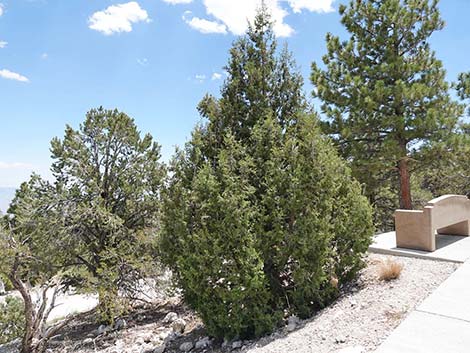 |
General: Rocky Mountain Junipers (Juniperus scopulorum) are coniferous (cone-bearing) trees with tiny, scale-like leaves. The cones are round berries about 1/4-inch in diameter. This species is most easily recognized by the tiny cones and the flat, drooping nature of the branches (more like a cedar than other local junipers). In southern Nevada, Rocky Mountain Juniper is uncommon in the Spring, Sheep, and Virgin mountains in the Transition (Yellow Pine Forests) and Canadian (Pine-Fir Forest) life zones. Family: Cypress (Cupressaceae). Other Names: Plant Form: Upright shrub to short tree. |
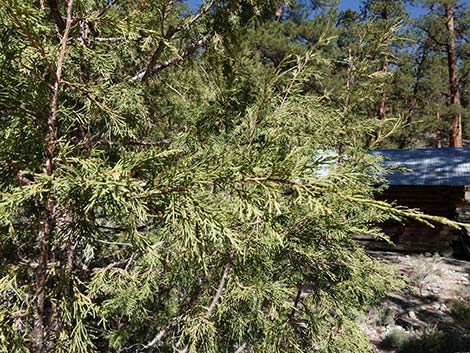 |
Height: To 20 (40) ft tall. Trunk: To 1.5 ft diameter. Bark: Fresh bark is reddish brown; aging to gray, shredding, and fibrous. Branches: Branchlets somewhat flattened (similar to cedar); drooping towards the end of the branch. Needles: Gray-green, scale-like, about 1/8 in long. Young twigs on immature trees have needle-like leaves. Leaves smooth on margin. Cones: Small; blue covered in grayish waxy coating. |
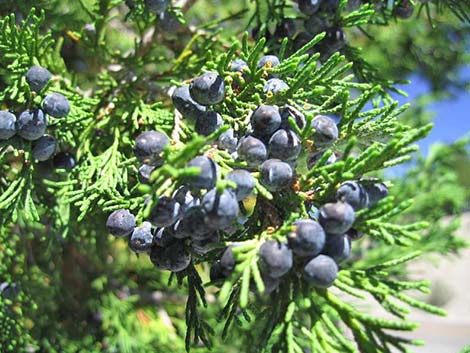 |
Seeds: 2 seeds, 6-9 mm diameter. Habitat: Higher elevation mountain slopes and ridges. Elevation: About 7,000 to 9,000 feet around Las Vegas; down to sea level in the north. Distribution: Eastern Nevada to New Mexico, north to the Canadian border. Comments: Rocky Mountain Juniper occur in the Spring, Sheep, and Virgin Mountains, but they are generally uncommon around Las Vegas. This species is most easily seen along the entrance road to Hilltop Campground (off Deer Creek Road between Kyle and Lee canyons). Rocky Mountain Juniper (above red line) and Utah Juniper (below red line). Red arrows mark juniper cones (small in Rocky Mountain Juniper and large in Utah Juniper). Blue arrow marks red bark on young stem of Rocky Mountain Juniper. Rocky Mountain Juniper appears more lacy, drooping, and flat, while Utah Juniper appears more coarse, upright, and angular. |
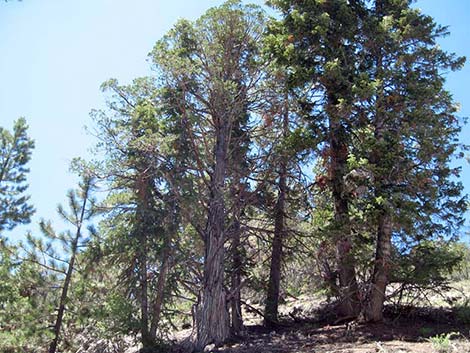 |
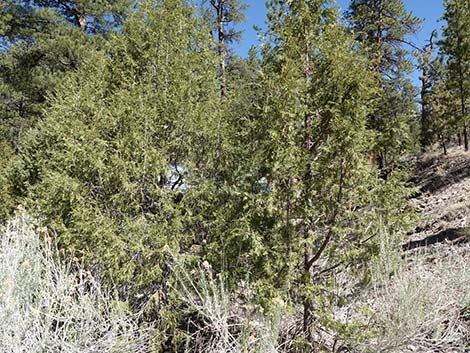 |
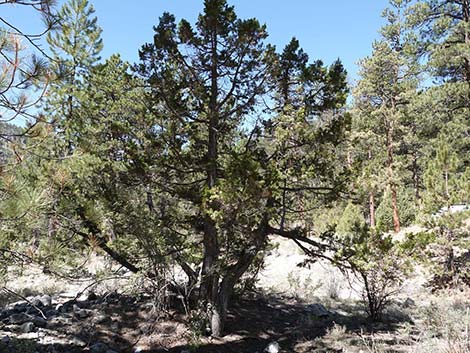 |
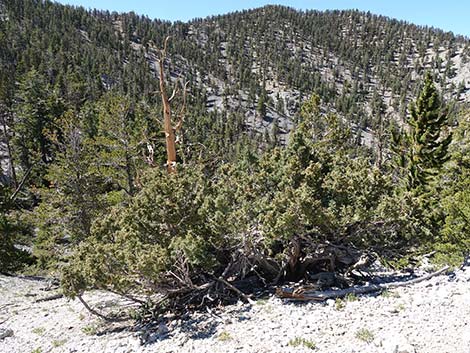 |
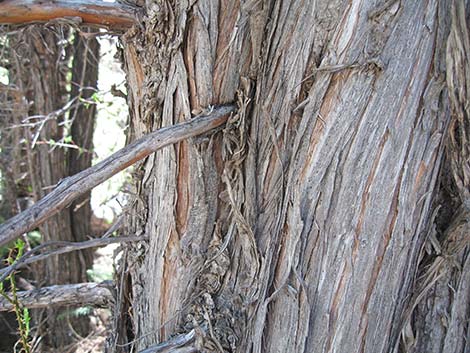 Gray, shredding bark on the trunk |
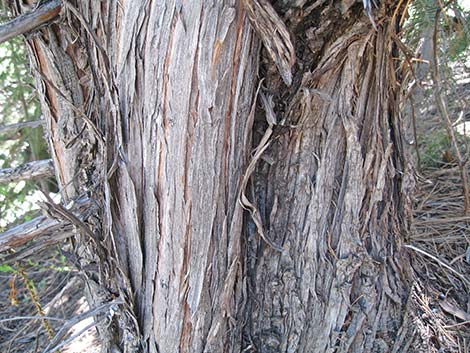 Gray, shredding bark on the trunk |
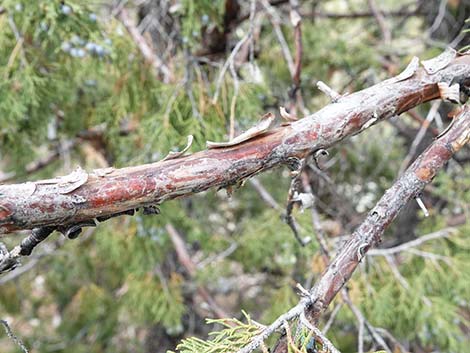 Red bark in branches |
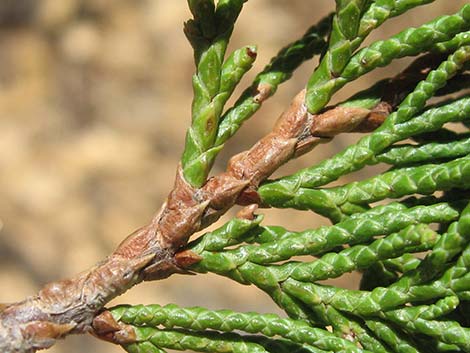 Red bark on young stems |
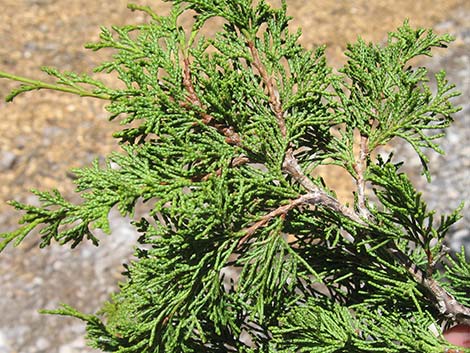 Long, lanky leaves |
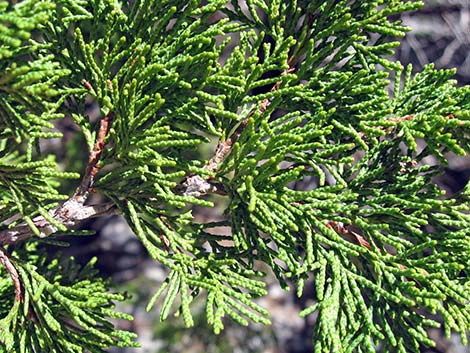 Long, lanky leaves |
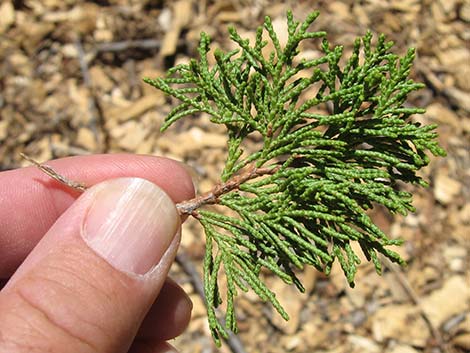 Branchlets are 2-dimensional: broad in side view |
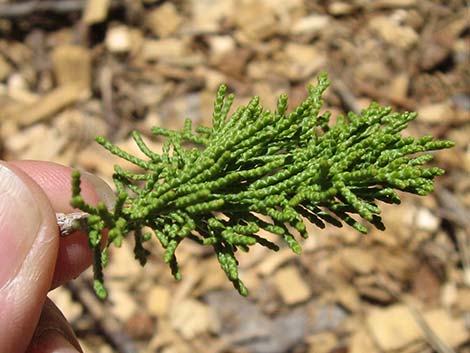 Branchlets are 2-dimensional: narrow in edge view |
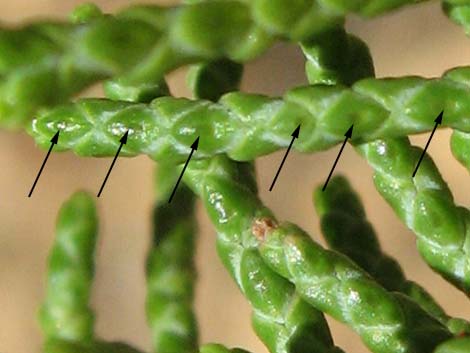 Leaves with glands |
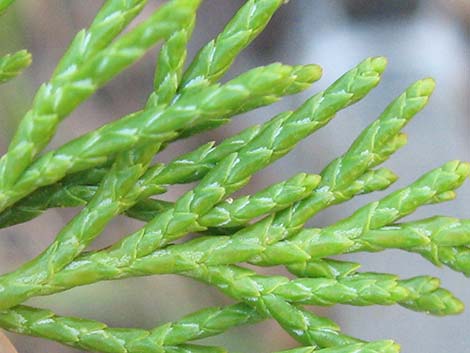 Leaves without obvious glands |
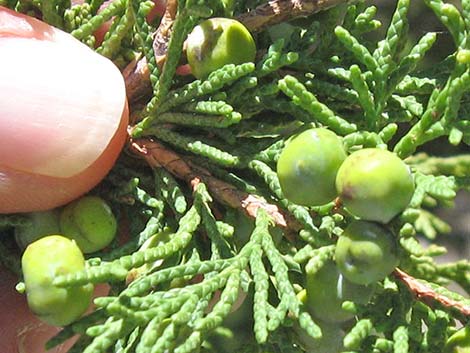 |
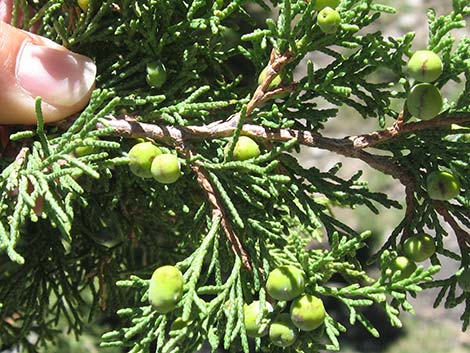 |
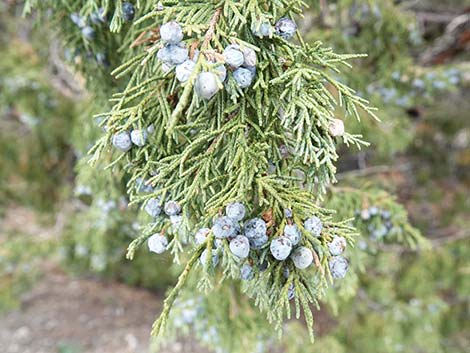 |
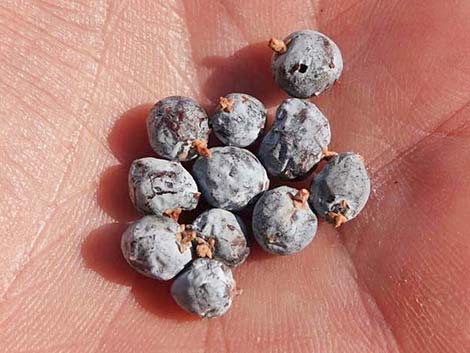 |
Note: All distances, elevations, and other facts are approximate.
![]() ; Last updated 211219
; Last updated 211219
| All Conifers | Plant Species Index | Glossary | Copyright, Conditions, Disclaimer | Home |